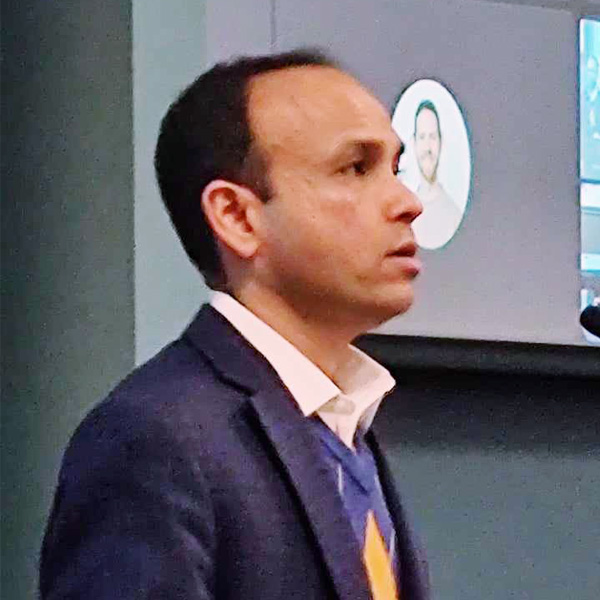CARMEL, Ind. — MISO said it has landed on a final design in its quest to move to a sweeping capacity accreditation that will better measure generators’ availability based on predetermined risky hours.
That’s despite stakeholders’ calls for MISO to push back a FERC filing until later in 2024.
MISO last week said it will file by March to employ a direct loss of load approach to accreditation by the 2028/29 planning year, when capacity credits will be determined by a combination of individual past performance and a resource-class average performance during risky hours for different types of generation. Most MISO resources will see their capacity values shrink under the new method. (See MISO Defers Unpopular Capacity Accreditation Filing, Remains Committed to Design.)
At a Jan. 17 Resource Adequacy Subcommittee meeting, MISO’s Neil Shah said the RTO began discussions on accreditation two years ago, right after it rolled out its first attempt at availability-based seasonal accreditation for thermal resources only.
Since RASC meetings in 2023, MISO has modified its proposal to include an expanded set of hours beyond loss of load hours that it will draw on to gauge generator availability for accreditation. Those will include low-margin hours where the reserve margin comes within 3% or less of load. The inclusion of more hours is meant to cut down on volatile accreditations year over year. Nevertheless, the loss of load hours will carry more weight in establishing capacity credits.
MISO’s FERC filing will leave some unfinished business with stakeholders: The RTO won’t define resource classes in the filing or how it will divvy up its planning reserve margin requirement into obligations among load-serving entities.
“MISO’s plan is to not define specific resource classes in its tariff. The idea is we will include criteria on how to define resource classes, and we will work with you all in the coming months to flesh out details,” Shah told stakeholders.
Shah said MISO’s final definition for resources classes will be contained in business practice manuals only.
MISO likewise will hold off on detailing exactly how it will allocate its planning reserve margin requirement (PRMR) to load-serving entities, leaving that to a later, separate filing. MISO previously said its direct loss of load accreditation could change how MISO allocates its PRMR among its load-serving entities. Today, MISO metes out its PRMR on a load-ratio share.
A new allocation would depend in part on how MISO ultimately defines resource classes. Shah said there’s no need for MISO to include the PRMR allocation in filing, as it originally proposed.
Sustainable FERC Project’s Natalie McIntire said she worried MISO’s resource class definitions would be too vague at the time of filing for stakeholders to be confident in how their resources would be classified and therefore accredited.
Shah said working out how resources would be grouped is a matter of technical details.
“The details are what stakeholders are going to judge for whether we can support this proposal,” McIntire countered.
WPPI Energy’s Steve Leovy agreed that MISO’s proposed tariff language to group resources by similar technologies and operating characteristics is “extremely slim.”
Minnesota Power’s Tom Butz said MISO seemed in a rush to file the accreditation, while Entergy’s Wyatt Ellertson asked MISO to allow a few more months to get stakeholders more comfortable with the proposal.
“I’m hearing honest requests from stakeholders. These are not delay tactics,” Ellertson said.
“I’m hoping that by now we’ve made the case as to why capacity accreditation is an important step to mitigate, especially in the resource transition,” Executive Director of Market and Grid Strategy Zak Joundi said.
Joundi said utilities appear to be in the midst of integrated resource planning and charting future portfolios. He said it’s valuable for market participants to be able to make investment decisions with a clear view of future accreditation values.
“That’s what the rush is all about,” Joundi said.
But MidAmerican Energy’s Dehn Stevens said the accreditation’s implementation date in the 2028/29 time frame seems to set LSEs up for “failure” because they won’t be able to get new resources lined up in time in MISO’s generator interconnection queue. Stevens said a date closer to 2030 is more appropriate and would allow LSEs time to prepare different types of resources if necessary to meet summer requirements in five years.
Shah said though some LSEs “will be in a bind” and should plan better, the accreditation would give valuable investment signals to utilities. He said though stakeholders might want a later implementation, the 2028/29 target date strikes the right “balance” between MISO, utilities and the energy transition.
Joundi agreed a three-year transition will give companies time to adjust investments.
Alliant Energy’s Jamie Niccolls said MISO could find itself in a “real weird situation” if FERC were to approve the PRMR allocation method based on the new accreditation but not the accreditation filing itself.
Shah said MISO will make sure FERC approved the accreditation process before it proposes a PRMR allocation to LSEs.
Shah also said MISO will tackle how to manage data transparency in the new accreditation process, devising measures to share data and modeling with utilities in the coming months.
Staff and stakeholders will continue to discuss the accreditation plan leading up to MISO’s filing.





